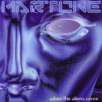Welcome again Guitar Nine readers. Hope all is well in the land of recording your masterpieces!
I know the last time we spoke, I was talking about the second form of PP (pre-production) but I am going off this month in a different direction. I would like to talk about the world of amplifier miking and listening.
What I am saying is: do we as guitarists simply put a microphone in front of our amp and hope for the best? Or do we take a bit of time to figure out what all the knobs actually do? I will attempt this month to tell you some of the pros and cons, and my personal likes and dislikes that I have with different tones.
First off, I remember buying my Mesa/Boogie full stack amp and salivating at the thought of getting it into the studio to record for the first time! It sounded so huge at home that I thought it would sound like King Kong playing telephone pole hydro wires! I got the chance a week later and had it all set and ready to go. It was miked up and I did a take that I thought was cool. I went back to the control room to hear it and my King Kong tone was reduced to a bag of smashed shrapnel! Aaaaaaaaaaaahhhhh!
This was one hell of a learning experience. Of course there are many variables on why the tone sucked and they were mostly operator error and ignorance!
I learned that the sound you have in your bedroom does not always work in the studio, and is different on stage yet again! The first thing is the amp itself. Listen to any rattling sounds coming from it like a loose speaker grill, caster, handle etc. Also make sure that the room your amp is in has no strange little noise makers like a snare drum that is on. All of these could be a deterrent to the sound.
The next is your settings. Of course this is very subjective due to the sound you hear in your head. A little tip is that less is more. For example, if you are looking for that ultimate heavy sound that will blow people's hairlines back, you must back the gain off to achieve a very tight responsive tone. If you do not, you get a very "flubby or farty" type sound. You might think you need the gain on 10 to get "your sound" but as you back it off it gets "punchy." Also watch the setting of the bass. I like a lot of it but dial in less than you think. If there is too much you will start to get "FMTS" (Fart Man Tone Syndrome). Also watch you do not have too much presence on you amp. I actually prefer to have the presence knob smashed off my amp in the 0 position. It just gives your tone upper-harmonic distortion. (I remember working with John Petrucci of Dream Theater in Boston at the BPC and this is where I learned this.) The mid knob is again very subjective but somewhere between 3.8 and 5.8 would be cool for the tone we are talking about. The treble knob is always changing for me. I have recorded in rooms where it ranged from 0 to 10! Very strange.
The next is where the amp is sitting in the room. I always put my cab in a corner of the room for extra bass response and warmth with the speakers facing out into the room.
The next is choosing which speaker to mike. My Boogie cabs are loaded with EVs on the top and Celestions on the bottom. If I want a tight, bright sound I will mike the EVs. If I want a mid honk, less precise sound I will mike the Celestions or both to combine both tones.
The next is which microphone to use and where to use it. Try anything! I do. You never know what will work. (A producer I know actually suspended a Marshall Cab in a elevator shaft and miked it!) Condensers are my choice for a warmer tone. Something like a Neumann or AKG. Note: Keep the volume down when using! Of course the SM57 works great. I like the sound of the microphone off axis approximately 45-60 degrees from the center, and placed close towards the edge of the cone. This makes the sound not so harsh, and gives it warmth. Some people use a room microphone for a fattener to give a 10ms delay (approximately 10-20 feet away and mixed in with the original sound).
Always cross reference your sound in the studio to the sound in the control room. Do not just crank the bass on the EQ on the mixer, go back and move a microphone around a bit. This will change the tone greatly.
Actually, I really do not spend a great amount of time setting up everything. I do not have the patience for it.
May the Tone be with you, and watch out for FMTS!
David Martone is a guitarist from Vancouver, Canada who has released seven solo CDs which showcase his musical diversity and brilliant guitarmanship.
His 2007 CD is entitled "When The Aliens Come", which features a progressive sound incorporating jazz, rock, fusion and metal influences.
